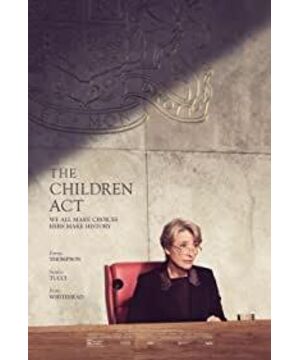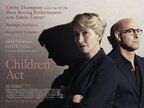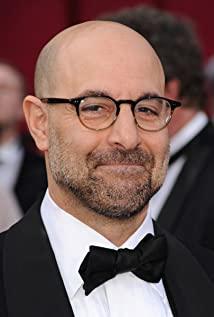Haven't read the original book, only understand the movie.
The first feeling in watching is that the sense of accomplishment in the profession of judge is overwhelming.
And a proper sense of ritual can not only increase the sense of accomplishment, but also make people more determined to keep the sense of justice unshakable.
The positivist school of law is so far behind in this respect, and so pragmatic that many people see judges only as a profession, rather than a just cause that decides the fate of others.
To a certain extent, the reputation among the public has collapsed, which is quite a pity.
Off topic.
After reading it, the romanticism will not change until death, and the realism will continue to live on its original trajectory after being touched by the romanticism.
Parents of boys have repeatedly mentioned that boys are special, really special, and not all parents feel that their children are special and special.
It's a pity that the main point of view of the film is the female judge. Except for the ending, the boy's specialness is not clearly shown in the process.
It may also be that the acting skills of the young actors are not enough. After all, this role is too far away from anyone in reality.
I don't quite agree with the idea of female judges being saved by boys.
For such a rational person, the confusion is only temporary, without the appearance of a boy, time can still allow her to make the most rational and self-interested choice.
The boy's self-chosen death changed neither the world nor others. The only thing that was changed was the life and life of his parents.
Of course, this isn't a realist story, and it's too bad to analyze it from this angle.
As the boy said, he refused treatment for the first time and chose death for his beliefs, but also for vanity, and for a grand funeral that has been missed for a long time.
And the second time to choose to die is really his own choice. After rejecting religious laws, it is a human and emotional choice.
It was a choice made after losing all of my passion, almost another faith, after losing My Lady, and after losing the light of life.
Although this choice is irrational and even has a certain rebellious psychology, it is proving to the light of his life that this time I can choose by myself and choose what I want to die for.
The relationship between the two people is purely passionate and desperate for a boy, while a female judge is much more complicated. Family problems, social pressure, self-doubt stemming from age, and tiny expectations to break through the taboos are mixed in the mix of rational and sensuality.
Truly in love with a special, deeply talented boy, inaccurate. The character and rationality of the female judge decided that she would not, at least not so quickly, be so straightforward.
It's just a liking for simple cute boys, not correct. The suggestion of wildness and "freedom" and the initiative to stir up the topic shows that the female judge has not never thought about it.
The final outcome is both expected and reasonable. After all, times have changed, too much. What's more, even a hundred years ago, Lewis Carroll, the author of "Alice in Wonderland", also succumbed to the pressure of reality.
Of course, from another angle, if the female judge did not choose a very unusual way of dealing with the child who needs a blood transfusion because of family problems, but a normal and simple decision, the story would turn into an ordinary comedy ending.
The boy who was rescued by a "forced" blood transfusion lived an ordinary life that may be ordinary or famous.
Just like the inability to respond to the boy's question of "why did you come to see me", the female judge's grief after the boy's death also has a considerable degree of this reason. I personally caused all this, the origin of the tragedy, but there is no way to change it, to change others, to change myself.
After the funeral and walking down the slope back to her husband, walking all the way, holding hands, turning conservatively to the right.
Therefore, it is really a talent to write such a story that is so worthy of complaining, so beautifully and so touching.
View more about The Children Act reviews











